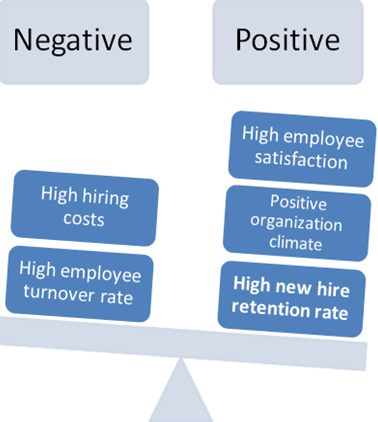If you are a human resource department worker, then you have firsthand knowledge of how challenging and complicated the process of personnel recruitment actually is. You will definitely agree that it is not easy to find qualified people, who wish to work for the benefit of the company. There are no 100% reliable means of defining whether the applicant for this or that position will meet your expectations or not. Meanwhile, this aspect is highly important, because the productivity of the company’s workforce affects its overall performance and profits. That is exactly why HR departments of both small and large companies all over the world recognize the necessity to implement human resource metrics.

What makes HR metrics so valuable? The thing is that they are really helpful in analyzing the company’s current performance and drawbacks that prevent these businesses from reaching all the objectives their managers have initially set. They are often compared to specific guidelines that make it possible for different organizations to find cost-effective solutions to the most obvious human resource problems they currently face. If measured properly, HR metrics help enhance the overall efficiency and productivity of the company’s workforce. That is why we may state that the basic objective of their implementation is accurate and quality personnel assessment.

How is it possible then to work out a reliable human resource metrics system? This generally depends upon the experience and qualifications of HR department workers. Those of them, who have never heard about the concept of HR metrics before, are more likely to make serious mistakes in their development and measurement, which can make the whole approach ineffective. In this respect, proper training matters greatly and managers of such companies should make everything possible to provide their human resource department employees with the required knowledge. As soon as they realize the basics of this system and measurement principles, they will not face problems when implementing HR metrics. As a result, they will be able to define those applicants who are more suitable for vacant positions the company has.
Gathering information about the personnel proves to be one of the main steps in the evaluation of their performance. Still, not all facts will be helpful here and HR specialists should be able to sort out those of them that are of paramount importance in this process. As a rule, ten metrics are more than enough to make this system effective. Such aspects as personnel engagement, recruiting and retention, workforce productivity and manager satisfaction should obligatory be included into this list, since they are those factors that affect the company’s performance most of all.